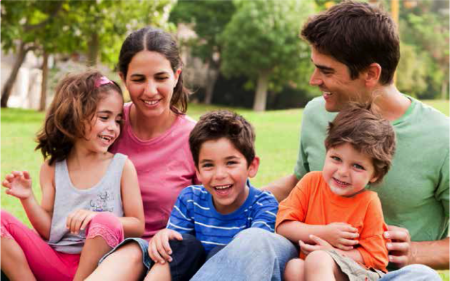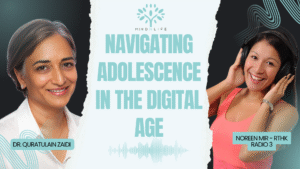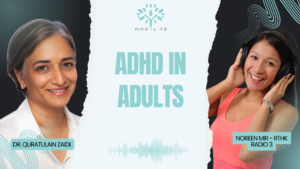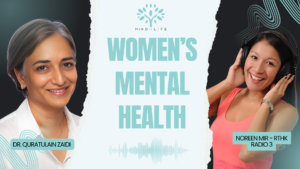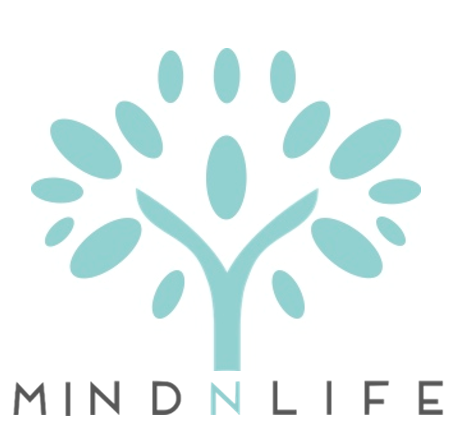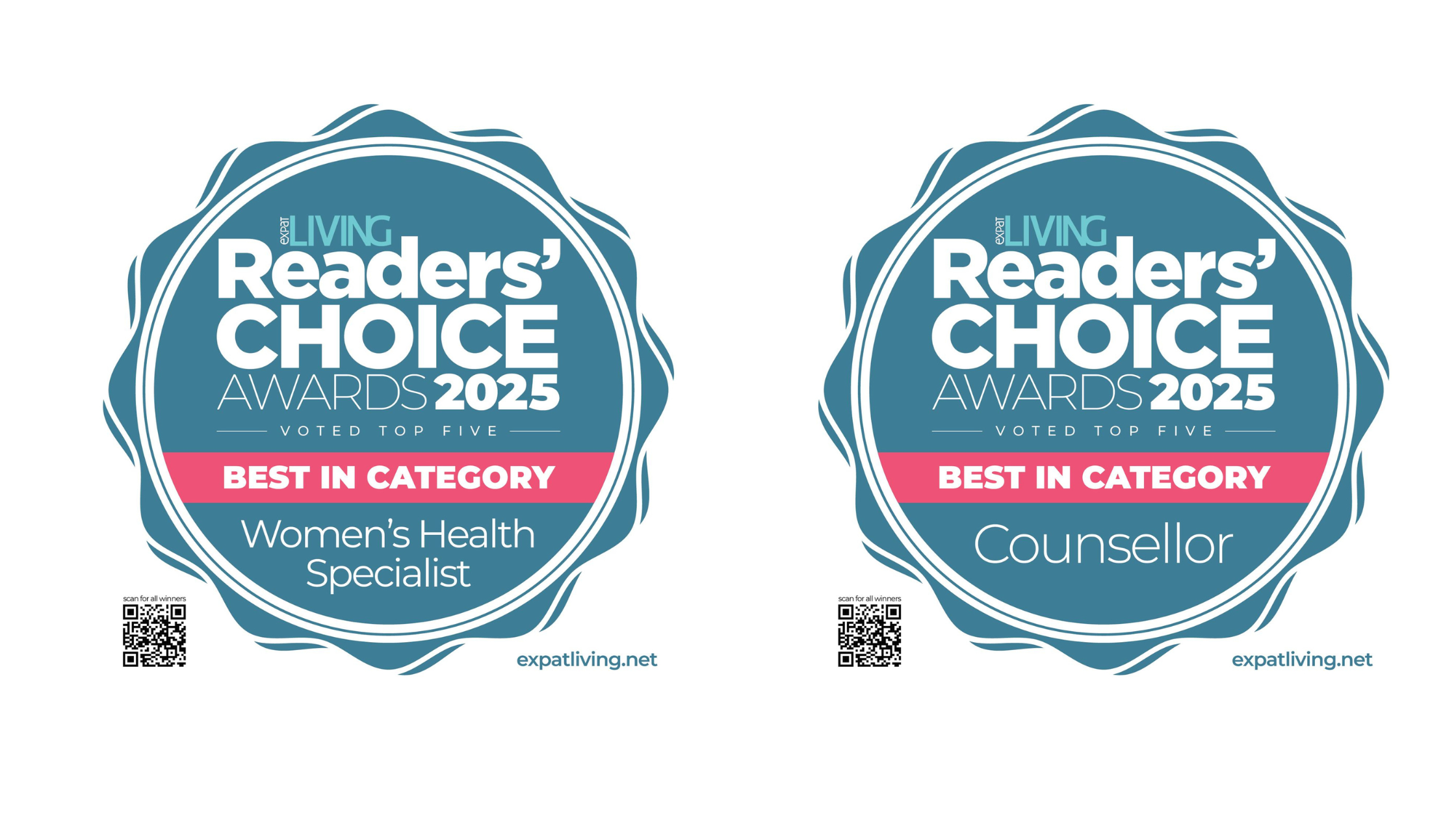Mindful Parenting or Mindfulness is much more than just a buzzword. As DR QURATULAIN ZAIDI of MindNLife explains, it’s being increasingly adopted as a parenting tool – and with considerable success.
Mindfulness has gone mainstream. In 2015, there were over 500 peer-reviewed papers published on mindfulness and there are numerous studies to show benefits of meditation on most aspects of our lives, including everything from concentration and stress reduction to depression and pain management, children’s maths scores, migraine severity, and the ability to bounce back after a crisis.
It’s no surprise that mindfulness as a parenting strategy has enormous benefits on our daily lives; and our children benefit from this automatically because we are in a better emotional state to deal with challenges of daily routines that often don’t go according to plan.
I ran my first ever mindful parenting workshops in Hong Kong last year, and the feedback from as many as 98 percent of participants was that they had benefitted from the meditation practices and practical parenting techniques covered in the workshop over the period of six weeks. The participants reported decreased stress levels and improved relationships with their partners and children; and, most importantly, they were able to recognise their own parenting patterns to manage the conflicts much better.
The biggest challenge for all the groups was to find the time to practice daily meditation and then to sustain what had been learnt in the six-week programme. The first of these is down to choice: making time for meditation is up to the individual; the second one I facilitated by leading meditation groups and offering follow-up sessions to ensure continuation of the successes seen in the workshops.
So what is mindful parenting and how can it benefit our families and us?
Often the physical and emotional demands of parenting exceed our limits and we end up feeling stressed, exhausted, irritable and – worst of all – overwhelmingly self-critical, inadequate and guilty. As parents, perhaps the most precious thing we can give our children is the gift of our full attention.
Mindful parenting is parenting with fuller awareness of each moment and deliberately slowing down to focus our attention on the “here and now”. It also means acknowledging that modern-day parenting is demanding and stressful, and accepting our own stresses and shortcomings with self-compassion. This acknowledgement allows us to make room for our own needs; for example, when we feel angry and stressed, asking a simple question like, “What’s going on for me right now?” can help create a space to respond rather than to automatically react.
We’ve all heard some variation of this announcement on a plane: “In case of an emergency, put on your oxygen mask first and then help the young and elderly”. From a parenting perspective, putting on our own mask first allows us to be present for those dependent on us. Taking care of ourselves is the first step in being the less stressed parent. Unfortunately, we often ignore this or find it hardest to implement. Yet we can only give to our children what we have given first and fundamentally to ourselves.
Mindful parenting involves an intentional shift of awareness. You choose to attend to what is arising in the moment. In that choosing, your brain’s activity changes, and you become master of the moment. Through both daily formal and informal practices, mindful parenting focuses on managing strong emotions, reactivity and stress, improving communication, honouring your children’s individuality, recognising and actively reshaping any maladaptive parental patterns, as well as cultivating compassion, loving kindness and self-care.
FIVE STRATEGIES FOR MINDFUL PARENTING
#1 STEPPING OUT OF AUTOPILOT
More often than not we’re on “automatic pilot,” mindlessly driven by automatic thoughts and behavioural patterns, preoccupied with a future that never quite arrives and a past that’s no longer happening. When we step out of autopilot, we address the deeper needs of our children, rather than getting mindlessly caught up in automatic reactions to their surface behaviours.
#2 BEGINNER’S MIND
Beginner’s mind is a wonderful strategy that allows us to live in the moment without judgement. The idea behind this strategy is that we take all of the things we know – our brilliant opinions, our reason and logic, even our cherished beliefs – and put it all on the shelf for a while and just go ahead and experience the moment here and now. When we extend this to observing and noticing our children without our embedded opinions and beliefs about them, we see them as they are, in that moment. The children then know that they are being seen as they are and being loved for who they are. Try it and tell me you don’t notice a difference.
#3 CONFLICT RESOLUTION
While we rejoice (or don’t notice) when interactions are smooth and collaborative, we feel distressed, doubtful, angry and frustrated when interactions break down. When things don’t go as planned, we often experience a “rupture” in our relationship. Mindful parenting shows us that each of these ruptures is an opportunity for repair. That is, rather than replay the same old script that reinforces these painful dramas, we can learn to respond rather than react; in doing so we begin to manage our conflicts in a healthier way.
#4 GRATITUDE
It’s so easy to let our focus on our problems overshadow what we have and cherish. Shifting our focus deliberately to what we are grateful for in our children and in ourselves as parents creates a new pathway in the brain that helps us become aware of what’s good in our lives; and we all are privileged to have plenty of good in our lives.
#5 SELF-COMPASSION
We live with the expectation of perfection in every facet of our life, including striving to be the “perfect” parent. Mindful parenting allows us to acknowledge that, regardless of our best intentions, moments of imperfection and failure are unavoidable. So, as parents, how we navigate these moments is an opportunity for learning and growth both for our children and us. Showing self-compassion and self-acceptance of these imperfect moments is hard, yet it’s an authentic model of what it is to be human; our children need to see this and learn that imperfection is acceptable and normal.
Nothing is more humbling, more challenging or more heartbreaking than parenting – trust me, as a mother of children aged 16 and 9, I know this. You can’t resign, hide or give up. Children don’t come with a manual; each child is unique, and we have to learn to accept them for who they are and develop our parenting strategies accordingly.
We have to balance the demands of modern-day parenting (which is stressful) with taking care of ourselves and realising that we can only care for our children and be present for our spouses when we have sufficient resources to take care of ourselves and for them.

Dr. Quratulain Zaidi (BSc. Hons, MSc, MSc, PhD) is a mother and a member of the British Psychological Society and British Association Counselling & Psychotherapy and abides by the Ethical Framework for Good Practice in Counselling and Psychology. She has lived in Hong Kong and Singapore for 12 years. She specialises in assisting families with issues including parenting, teen issues, Cybersafety, marriage guidance, post natal depression, stress and anxiety disorders, depression, bullying, eating disorders, OCD and self-harm. She is an expert in educational assessments and learning challenges in children, for example ADHD, ADD, Dyslexia and ASD.

